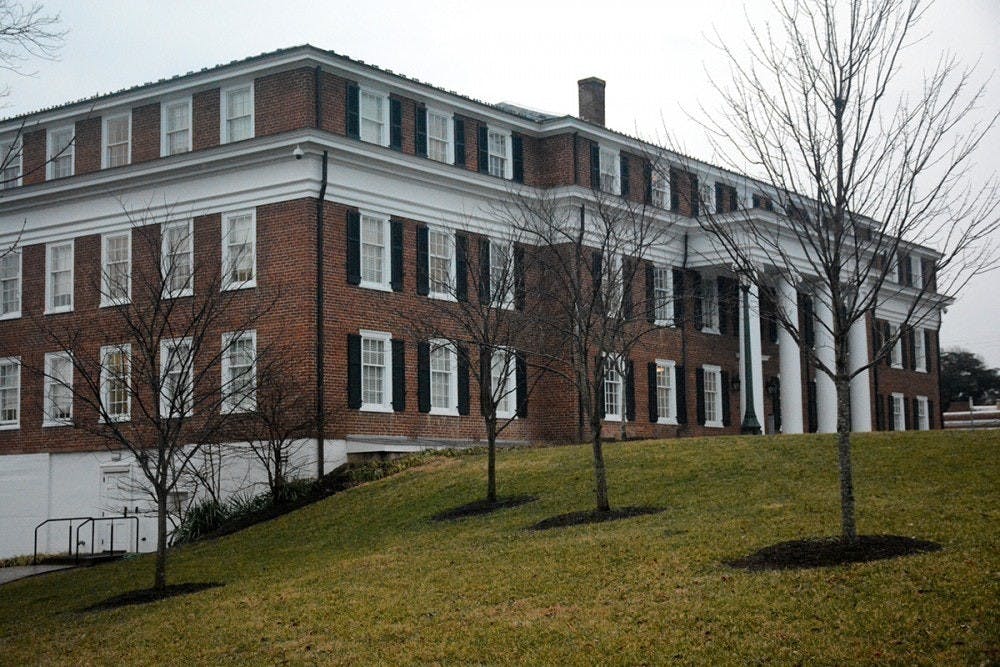In October, ProPublica published an article detailing the repulsive handling of sexual assault cases at Liberty University. The Virginia college — founded by Jerry Falwell, known for his backwards Christian conservativism — has silenced the voices of students who were raped or faced sexual assault. One student, Elizabeth Axley, was told not to report her assaults over fears that she — the victim — would be punished for drinking alcohol or “fraternizing” with the opposite gender. The school’s Title IX coordinator ignored Axley’s report, which included textual evidence. The coordinator instead pushed blame upon Axley by suggesting she could’ve avoided the assault and was thus responsible for it. The article goes on to describe and mention similar experiences across Liberty’s student body, with most of the assaults being reported by women.
It is never a needless reminder to say rape and sexual assault are not only illegal but also repulsive, immoral and utter violations of the human body. While literally anyone can be a victim of sexual assault, the most common targets follow historical patterns of marginalization. Women — especially young women of color — transgender people, Native Americans, disabled people and imprisoned people are some of the most frequently-assaulted populations in the United States. Additionally, college students of any gender identity are at a significantly higher risk of being sexually-assaulted than the national population.
Liberty’s inaction toward its students’ pain and cries for help perpetuates the patterns above. Liberty has chosen to privilege rapists and sexual assaulters over students who report being assaulted and deserve support. Liberty is complicit in the violence occurring on its campus. For its noncompliance with Title IX, Liberty should lose the ability to hand out accredited degrees to students entering the college beginning next fall. Liberty is simply unsafe. It’s well-past the time to take it out of commission.
That being said, Liberty is far from the only college or university mishandling rape and sexual assault cases on their campuses. Even if Liberty marks a particularly egregious instance, accredited institutions like Brown University, University of Connecticut and Dartmouth College lead the nation on assault cases as of 2016, according to the Washington Post. However, the majority of large colleges and universities do not share adequate information about their handling of rape and sexual assault on their campuses. These two trends — persistence in assault cases and ambiguity of policies — leave many students in the dark when it comes to reporting their experiences, let alone actually feeling secure that those experiences won’t arise in the first place.
In that Washington Post article, U.Va. was listed as the school with the fifth highest number of rape reports in the country in 2014. Following the infamous 2014 retracted Rolling Stone article, sexual assault victims became vilified in national media. They were made into liars and fabricators. That is far from the truth, though. Misreporting in sexual assault cases often stems from the difficulty of reporting traumatic experiences. Regardless of the falsities in that Rolling Stone piece, it nonetheless ignited a needed discussion about sexual assault on Grounds.
The University has increased funding and staffing for its Title IX program, Counseling and Psychological Services and the Women’s Center. It now requires students to complete Title IX modules upon enrollment. Emergency blue-lit telephones stand all across Grounds, accessible 24/7.
However, these actions haven’t been enough to dispel the rape culture at large that looms over both this University and the nation. While Liberty has systemized rape culture into its abhorrent sexual assault handling, we at the University still live in a rape culture that persists despite administrative changes. In a C-Ville Weekly article from 2019, students still reported sexual misconduct as a problem on Grounds, still reported fear about reporting assaults and still expressed dismay at the University’s handling of cases that are reported. Students even took reporting into their own hands using an anonymous Twitter account that outed sexual assaulters across Grounds.
We must recognize that these Grounds are built on the backs of Black and Indigenous people who were enslaved and exploited during the constructions of this University and this country. Thomas Jefferson is now well-known to have had a sexual relationship with Sally Hemings, a woman whom Jefferson enslaved. Thus, Hemings had no ability to consent to Jefferson’s sexual advantage. Today’s University has not escaped these histories, nor has it eradicated their legacies. Rape culture, racism and misogyny remain prevalent on Grounds. Next spring, Domale Keys, assistant professor of women, gender, and sexuality studies, will be teaching WGS 4559-002 on Campus Sexual Violence through a Black Feminist Lens. Assoc. English Prof. Lisa Woolfork will be teaching ENGL 4500-001, or Sally Hemings’s University, a course reflecting on the University’s historical framing of Jefferson and Black people’s position in that exploitative history.
These courses aren’t coincidental. They elucidate the fact that we still have a problem. We must at once condemn the actions of Liberty University and recognize that U.Va. is not free from criticism. We must continue to call out and criticize rape culture on all college campuses. We must end victim blaming and recognize that rapists and assaulters are at fault. We must hold administration accountable, alongside holding fellow students accountable when they perpetuate rape culture. These aren’t easy tasks with simple solutions, but they must remain things we constantly enforce and never forget.
Bryce Wyles is an Opinion Columnist for The Cavalier Daily. He can be reached at opinion@cavalierdaily.com.







